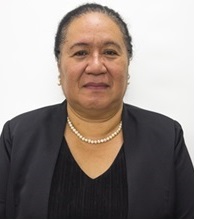

1:30 pm EST - 4:45 pm EST
Past Event
1:30 pm - 4:45 pm EST
1775 Massachusetts Avenue N.W.
Washington, DC
20036
The Center for East Asia Policy Studies at Brookings hosted its third Asia Transnational Threats Forum on December 16 focusing on climate change in the Asia-Pacific. The previous two forums addressed cyberthreats and terrorism’s reach in the region, highlighting international and regional cooperation as a key way to counter such threats. As one of the global engines for growth, Asia has to deal with an additional challenge: addressing rising emissions plus inimitable climate vulnerabilities and heightened natural disasters.
In the Asia-Pacific region and beyond, ocean acidification and warming threatens to reduce fish stocks and increase tension over water resources and maritime boundaries. Desertification as well as melting lake and sea ice can cause landslides, flooding, and increase competition for scarce resources. Extreme weather events devastate economies and damage vital infrastructure, including military and defense installations. Rising sea levels reduce the land available for agriculture, trigger temporary and permanent involuntary displacement, and can eventually make small countries, such as Pacific island nations, altogether inviable.
As Jung Pak, senior fellow in the Center for East Asia Policy Studies and SK-Korea Foundation Chair in Korea studies said while opening the conference: “It’s not about climate change, but climate changed.”
Brookings President John R. Allen, in his welcome address, highlighted the urgency to respond to the Asia-Pacific’s vulnerabilities to climate change. Heightened competition for water and scarce natural resources, coupled with urbanization and extreme weather events, is likely to increase instability and compound violence and armed conflicts in the future. The United States military, he noted, is already talking about the advent of resource wars.
Ambassador Fekitamoeloa ’Utoikamanu, U.N. High Representative for the Least Developed Countries (LDCs), Landlocked Developing Countries (LLDCs), and Small Island Developing States (SIDS), offered keynote remarks. She said the LDCs, LLDCs, and SIDS in the Asia-Pacific region are among the countries most vulnerable to the climate emergency, yet have made the smallest historical contributions to global warming.
’Utoikamanu warned devastating hydro-meteorological events such as Cyclone Idai in East Africa, Hurricane Dorian in the Bahamas, Cyclone Pam in Vanuatu, and Cyclone Winston in Fiji triggered seven out of 10 million new internal displacements in the first half of 2019 alone and will continue to devastate small island countries. Many LDCs, LLDCs, and SIDs face commodity dependence, high debt obligations, and limited institutional capacity, and are thus highly vulnerable to systemic and environmental shocks. Moreover, as sea levels rise, ever-increasing land loss for the SIDS will cause their disappearance, which raises fundamental issues of sovereignty, national identity, legal rights, and lack of access to financial compensation and support.
Sherri Goodman from the Wilson Center stressed the importance of improving predictive capabilities and climate-proofing solutions for disruptive weather and water security events. The threat-multiplier effect of climate change in the Asia-Pacific is a mounting challenge, advised Goodman. Integrating our understanding of climate and ecosystem changes coupled with transnational and security threats for a more integrated framework will be vital. On the Arctic, she flagged China’s increasing presence and Russia’s attempts to militarize and monetize the Northern Sea route.
As countries endeavor to reduce emissions, the World Resources Institute’s Leonardo Martinez-Diaz said countries also must come up with ways to absorb, reduce, and bounce back from the damage caused by extreme weather events. Advocating for a policy agenda for building resilience, Martinez-Diaz highlighted the importance of creating and enforcing clear land use policies in cities, building codes, zoning regulations, as well as creating and disseminating flood maps, risk maps, and a hazard matrix for the public and real estate developers. Such information will be key in planning for the most efficient relocation of people and, in some cases, entire communities. Policymakers should emphasize immediate, easy, and low-cost ways for the public access decision-ready data.
Korea University Professor Suh-Yong Chung asked: How do you design institutions and get countries to reduce greenhouse gas emissions when most Asian countries are not legally bound? Chung warned that 50% of future greenhouse gas emissions will come from Asia. In order for Asia to maintain its status as the engine of growth, he added, countries in the region need to invest in low carbon technologies, improve governance, and develop their five-year low carbon development plans, including through the Global Green Growth Institute.
Professor Mely Caballero-Anthony, head of the Centre for Non-Traditional Security Studies at the S. Rajaratnam School of International Studies (RSIS) at Nanyang Technological University in Singapore, flagged several transnational impacts of climate change, including natural disasters coupled with existing conflicts, regional coordination of humanitarian assistance and disaster relief, and the spread of vector-borne diseases. Legally binding agreements and regional mechanisms like the ASEAN Action Center for Humanitarian Assistance and the creation of a regional disease surveillance mechanism will be critical to monitor and coordinate assistance activities in the region.
Rod Schoonover, founder of Ecological Futures Group and former U.S. intelligence official, expressed concern over climate change effects not normally captured in meteorological frameworks. The rise in animal and plant extinctions, redistribution of plant and animal life on Earth, and over-expression of rapidly-evolving or reproducing species such as algae could have significant economic repercussions for Asian countries. He highlighted ocean stresses beyond acidification, to include stratification, direct pollution, debris such as microplastics, and freshwater stress from over-pumping of groundwater. Income disparity, governance challenges, misinformation, and disinformation will continue to be challenges to combatting climate change. Schoonover encouraged the U.S. military to decarbonize as quickly as possible and use military-to-military engagement to help other militaries follow that example.
The U.S. Department of Defense (DoD) plays a significant role in the Indo-Pacific region, asserted Brigadier General Joel Vowell, at the U.S. Indo-Pacific Command, including consequence management, disaster response, and humanitarian assistance. On climate change and beyond, DoD is committed to interoperability, cooperation, knowledge sharing, and capacity building, through finding common values in allies and partners in ways competing nations, such as China, can’t. Vowell also expressed concern at the ecological damage caused by Chinese construction in the South China Sea.
Hiroshi Ohta from Waseda University underscored Japan’s climate vulnerabilities to devastating typhoons and earthquakes, and at the same time, the preparedness plans the country has developed to provide early warning and react. Japan is active in 14 Asian countries and six Pacific island countries promoting low-carbon societies, indigenous buildings, urban development, and ecosystem preservation. Reducing emissions is not only the responsibility of governments and industries, but also of households. Sustainable societies, Ohta emphasized, must include changing lifestyles — opting away from plastics and one-time use materials, using public transportation, consuming and buying less, electric cars, and other measures.
The youth movement to tackle climate change, according to Samantha Gross, fellow in the Cross-Brookings Initiative on Energy and Climate, will play a positive role in pressing governments for action, even amid populist, anti-globalization, and anti-multilateralism sentiments. These youth are pushing for alternatives to a throw-away culture and long-held practices. Gross noted politicians may not be able to ignore constituencies seeking action, resiliency, and greener energy systems.
Keynote

Moderator

Panelist




Moderator
Panelist




Homi Kharas, Charlotte Rivard
April 16, 2024
2024
The Brookings Institution, Washington DC
4:00 pm - 5:15 pm EDT

Pedro Conceição
April 3, 2024